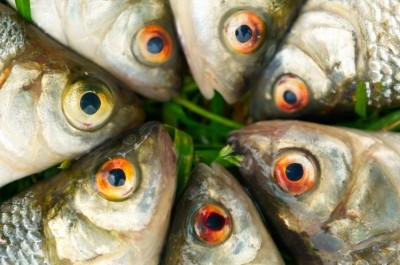Mediterranean fish stocks show steady decline

A new report evaluating nine fish species, reported in Current Biology, calls for rigorous monitoring of Mediterranean fishing activities, better enforcement of fisheries regulations, and advanced management plans in Mediterranean waters in response to declining fish stocks.
“The European Common Fisheries Policy that has assisted in improving the state of northeast Atlantic fish stocks in the past 10 years has failed to deliver similar results for Mediterranean stocks managed under the same policy,” said the research team behind the report.
The data shows how fishing pressure in the Mediterranean intensified continuously from 1990 to 2010, with more and more fish caught as juveniles. If those young fish were allowed to reach maturity and reproduce at least once, it would greatly improve Mediterranean fish stocks, they suggested.
"It is time for the European Union and regional governments to start taking Mediterranean fisheries research and management more seriously," said lead researcher Paraskevas Vasilakopoulos of the Hellenic Centre for Marine Research in Greece.
"Bigger investments are needed to improve Mediterranean fisheries research through the collection and analysis of good quality data regarding the biology and exploitation of Mediterranean fish stocks."
Taking stock of the situation
Vasilakopoulos and his colleagues analysed European Mediterranean fish stocks representing nine species from 1990 to 2010 to show that the exploitation rate has steadily increased as selectivity has deteriorated and stocks have dwindled.
The stocks that were examined included 12 hake (Merluccius merluccius), 12 red mullet (Mullus barbatus), seven anchovy (Engraulis encrasicolus), six sardine (Sardina pilchardus), and five other demersal stocks (striped red mullet, Mullus surmuletus; black anglerfish, Lophius budegassa; common pandora,Pagellus erythrinus; sole, Solea solea; turbot, Psetta maxima).
When taken together these stocks equate to around half of the total landings of bony fishes (excluding tunas and billfishes) caught by European Mediterranean and Black Sea countries in 2010, said the team.
“The shrinking of Mediterranean stocks that is revealed here explains the declines that have been observed in Mediterranean landings, especially of demersal fish species, over the past two decades,” said the report.
Using species-specific simulation models, the team also show that stocks would be more resilient to fishing and produce higher long-term yields if harvested a few years after fish reach reproductive maturity. This is especially true for species like hake and red mullet, which live at or near the bottom of the sea and are often scooped up by trawl nets in very large numbers, they said.
Often overlooked?
There are some obvious reasons why Mediterranean fisheries have been conveniently overlooked, said Vasilakopoulos – citing that Mediterranean fisheries include a greater diversity of species and gear used to catch fish in comparison to fisheries of the northeast Atlantic.
In addition, more than 95% of Mediterranean fishing vessels operate on a small scale over a vast coastline, so making monitoring and enforcement a great challenge.
Those difficulties are compounded by financial constraints in many Mediterranean countries.
The researchers say that many more fish species are likely to be in a similar state of decline, both in the Mediterranean and in seas of other resource-limited regions of the world, including the Chinese seas and the seas and estuaries around sub-Saharan Africa and the tropics.
“Current findings may apply to these cases as well; therefore, fish stock decline reversals in the developed world should leave no room for complacency,” the authors warned.
Source: Current Biology
Published online ahead of print, doi: 10.1016/j.cub.2014.05.070
“The Alarming Decline of Mediterranean Fish Stocks”
Authors: Paraskevas Vasilakopoulos, Christos D. Maravelias, George Tserpes


















